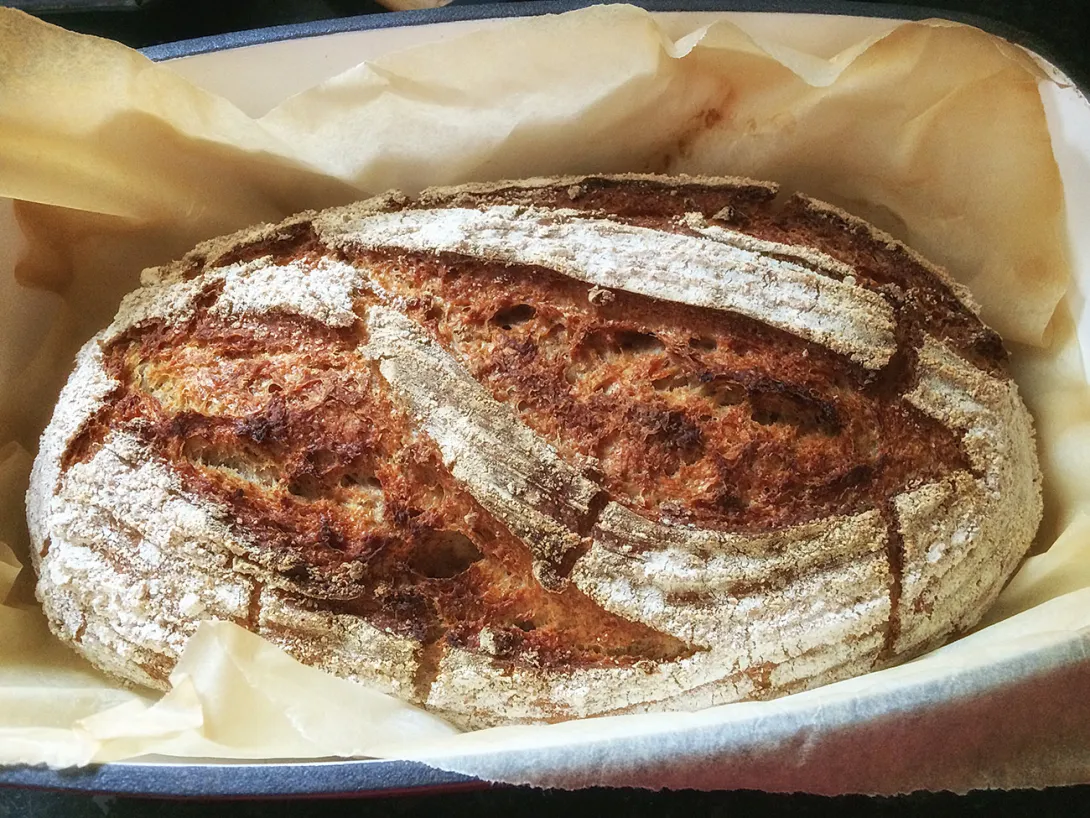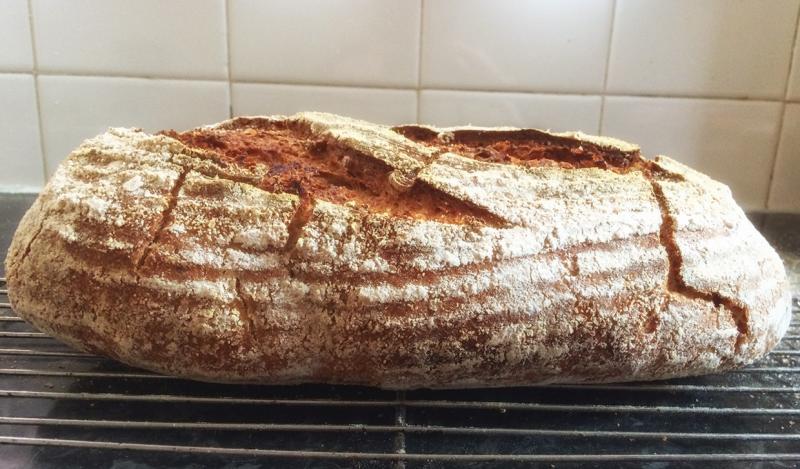
Now I made this one today, I started the preparations last Night so that I could bake it at lunchtime today.
This one did not rise as much as the * Rustic loaf * I made yesterday for 2 reasons.
A. I had less 50% hydration Starter * I did not plan well ahead , doh *
B. The banneton was to big so it did spread more to the sides than it did go up. pffft
Lesson learned, next time I will bake Batards on a Baking Stone.
The Crumb is not very open, but I do like it when I have a bread with a lot of whole wheat and rye flour in it:)
150g mature 50% hydration Starter
300g Bread flour
250g Wholemeal flour
200g Rye flour
2tbsp Caraway seeds
2 tbsp Vegetable oil
500ml tepid Water
25g coarse Salt
Mixed the 50% hydration Starter with the Water & Oil and added the flours.
Mixed all well until there was no dry flour.
Autolise for 50 Minutes.
Added the salt and incorporated it into the dough.
Did turn the dough every 30 minutes for 3 hours. * 6x *
* When I say turn I do that in the bowl by grabbing one edge of the dough and fold it over the dough and go round the dough and do this , usually 6 tuns *
Between the turns I put the bowl with the dough in a large plastic bag.
Bulk fermentation over night.
Turned the dough out on my counter and shaped it in to a batard * finally know how to do it. yeahhh *
Put the batard upside down in a well floured banneton.
Covered the banneton with a well floured kitchen towel and then put the plastic bag over it.
Final proofing for 2 1/2 hours.
Preheated the Oven with the Dutch Oven in it.
Baked the bread for 40 minutes at 250C .
Reduced heat to 200C and baked the bread for a further 30 minutes with the lid off.

- PetraR's Blog
- Log in or register to post comments
a very nice crispy looking crust and teriffic bloom. It has to taste even better than it looks. Well Done and
Happy baking
Thank you dabrownman, it tastes wonderful.
I just wish it had risen up and not spread out, well, I know why and can make changes.
It still got a good spring and beautiful scoring, must be really good with the caraway. You're really turning out some beauties! Good luck with the move, it'll be exciting to try out your new oven.
Thank you, it is not to bad, but I wish it had risen a bit more during baking.
I must see that I find a baking vesel that is not as wide. hmmm
http://www.oilsfats.org.nz/library/the-role-of-fats-in-baking/
I noticed a different for the better when I use Oil in my bread.
Just to keep the comments together since this was made yesterday as well, and I wouldn't want anybody to be confused.
oil in bread dough does not reach the smoke point. The dough never gets that hot unless you burn it severely. While the oven is hot enough if you put the oil in a pan and baked it, when surrounded by water and flour the oil is insulated enough that it won't get to the smoke point.
Oh it does lubricate the oil if you use for example the oil to put the dough in an oiled bowl and put some oil on top of the dough before covering it, it lubricates the dough and prevents drying out during first rise.
I noticed a huge differnce in my breads since I add the oil in to them.
I noticed a nicer softer crumb and also a longer shelf life for the bread and it does geht that texture that you get on the 3rd day where it gets all hard and just not very nice.
Color is great and Looks like a good bloom! Very nice!